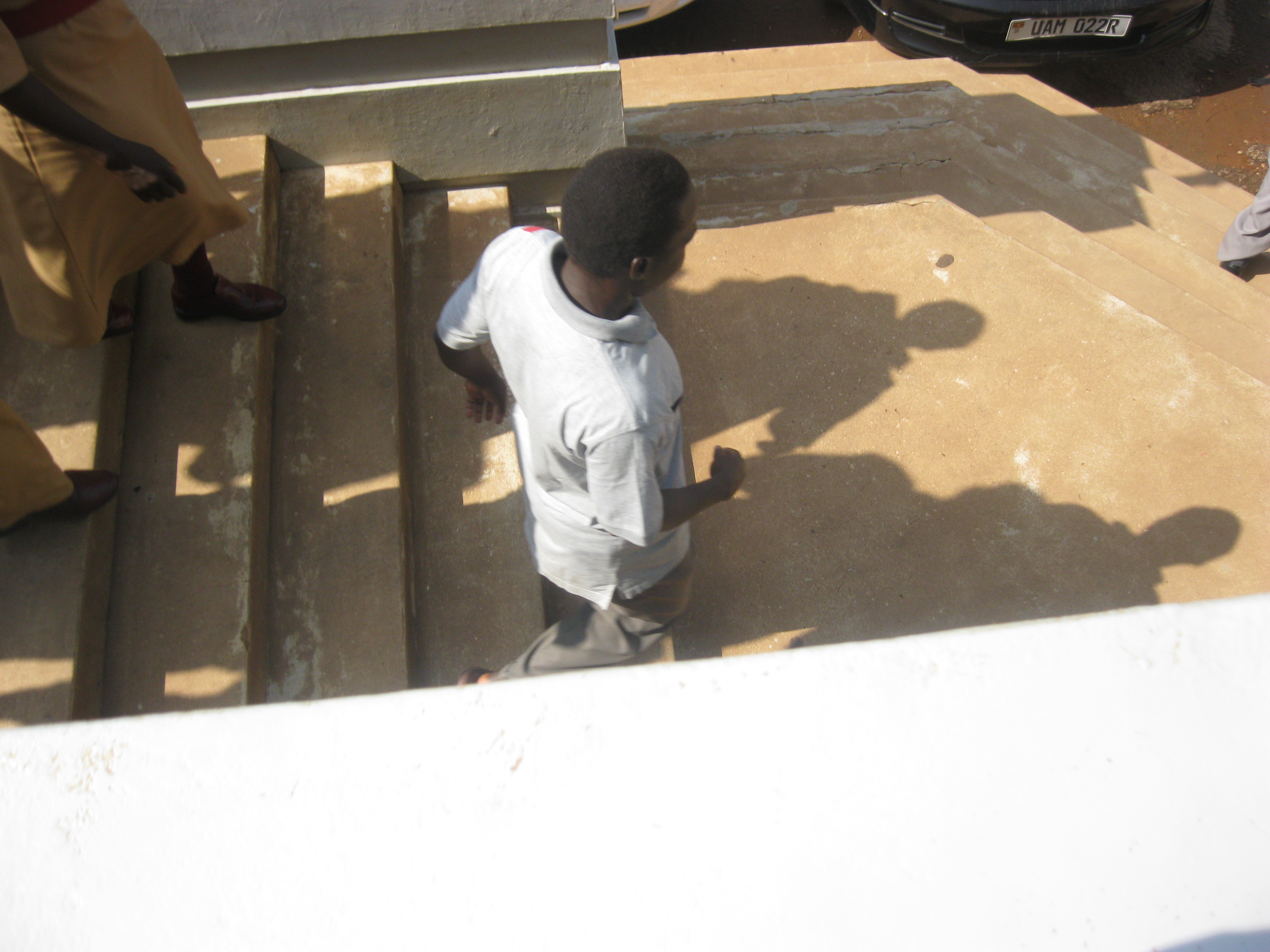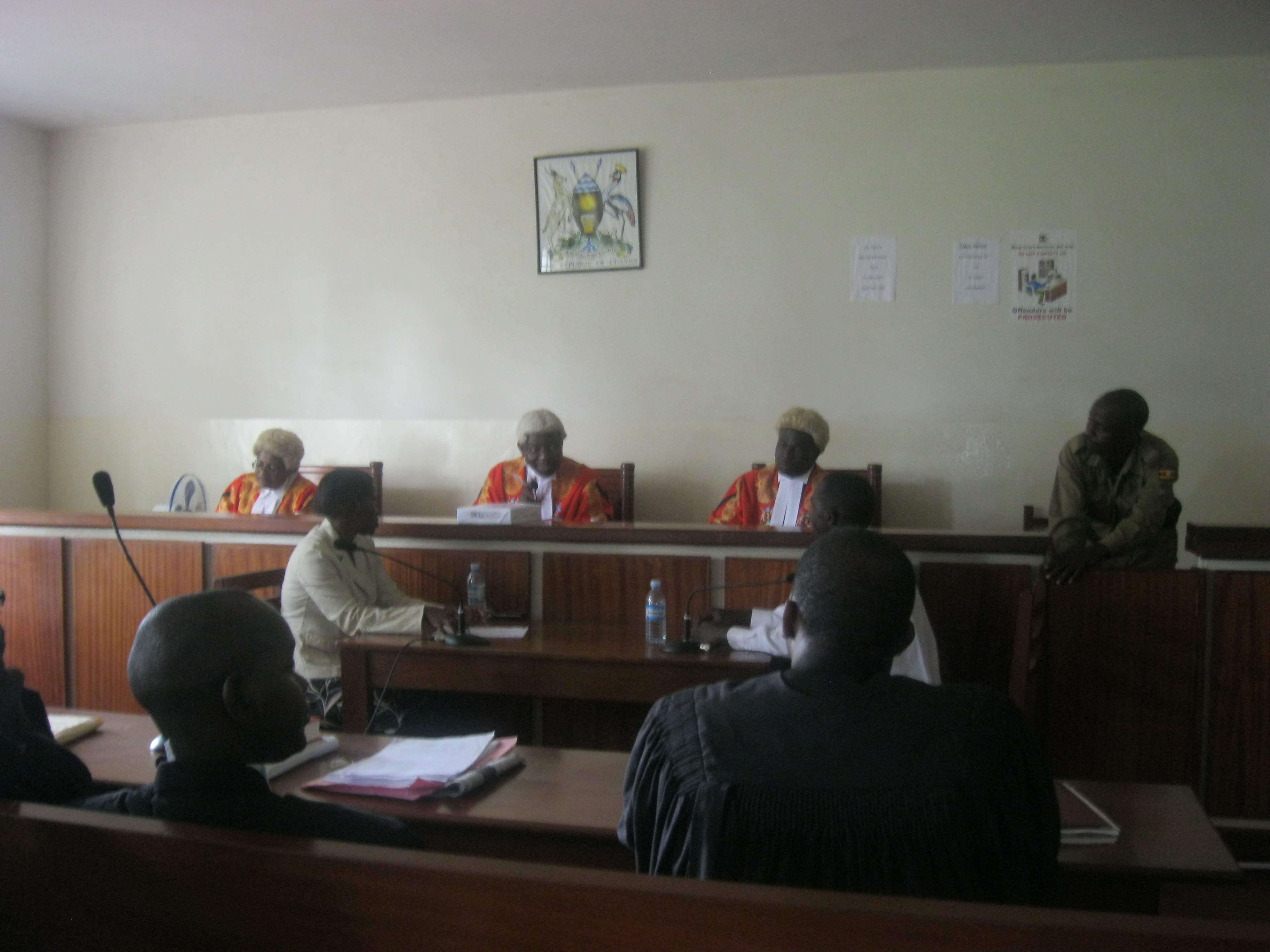
Cultural and religious leaders, representatives of civil society organisations and district officials and chiefs met with two officials from the International Criminal Court (ICC) Prosecutions Office in Gulu on Tuesday, November 27. The meeting was organized by the ICC’s outreach team, based in Kampala.
The objective of this meeting was to provide updates to the relevant stakeholders on the on-going trial proceedings of alleged Lord’s Resistance Army (LRA) Commander Dominic Ongwen and to discuss concerns. The ICC representatives of the Prosecutions Office also answered audience questions. This fits in with a many other outreach initiatives by the ICC, including rural screenings and discussions, to better link the affected community and the court.
The meeting was characterized by constructive and critical questions raised by the audience and with a high level of participation and engagement. Since Gulu has been heavily affected by the LRA insurgency, community leaders and members showed great interest in following the current trial and the national discourse surrounding it.
After a brief introduction from all participants, the ICC representatives summarized the key elements and points from the current state of the trial.
The trial against Ongwen began in December of 2016. Ongwen is accused of 70 counts of war crimes and crimes against humanity, allegedly committed in northern Uganda.
The Prosecution has completed its presentation of evidence and legal representatives of victims have called witnesses to testify before the chamber. In September of 2018, the Defence made its opening statement and began presenting evidence on October 1. So far, twelve out of 60 witnesses of the Defence have been heard. The remaining witnesses and testimonies are expected to be concluded in the end of 2019.
A judgement is estimated to be made in 2021.
Key issues of the Defence during the opening speech as well as witness presentation have included the following:
- Provision of an understanding of the Acholi culture and the conflict in northern Uganda
- The role of Spiritualism within the LRA and its impact on abductees
- The relationship between Ongwen and LRA leader Joseph Kony.
- The role of and crimes committed by the Government Forces
- The coercive environment and the fact that Ongwen was himself a victim
The importance of traditional Acholi values and the destruction of these values due to attacks on and abductions of civilians have also been highlighted.
Additionally, Ongwen is charged with crimes on grounds of gender-based sexual violence. The defence has claimed that men also had no choice other than taking the women, due to the orders given. This view is not shared with the Prosecution since women were not only distributed to soldiers and combatants as wives, but were also victims of forced marriage and sex slaves.
For their part, witnesses of the Defence have concentrated on crimes and atrocities committed by other actors than the LRA, such as the Ugandan Government. The lack of a solid basis of evidence at the current moment for such claims led the Prosecution to not investigate the allegations.
The Prosecution is also aware that crimes have been committed against men during the conflict between the LRA and the Ugandan Government. It did not, however, perceive these crimes as systematic and widespread.
The introduction of spiritualism during the trial has caused the Prosecution to use careful tactics during to cross-examination. Spiritualism played a vital role for the LRA and more importantly for the abductees. The indoctrination of children into the armed group has included spiritual practices which reinforced the belief that Kony can predict the future. This made any attempts to escape impossible and severely punishable.
The complexity of bringing the spirit world to the court room caused the prosecution to use limited cross examination tactics when engaged with these witnesses, avoiding cross examination about spirits.
Several questions were raised by community members and stakeholders during the meeting. Those included the role of victims and affected communities, as well as reparations. One CSO has strongly questioned the Court’s effort on pursuing the arrest of Kony and highlighted Ongwen’s attachment to the sole decision-maker within the LRA. Furthermore, reconciliation and healing processes within communities are still on-going and many will not find peace until justice is served. It was emphasized that peace is temporary, leading to demands for redress for victims and calls to boost ICC’s strategy for state cooperation.
The meeting gave people a platform on which to share concerns, and provided crucial information about the trial. As always, JRP will continue to share all developments as information comes to light.






